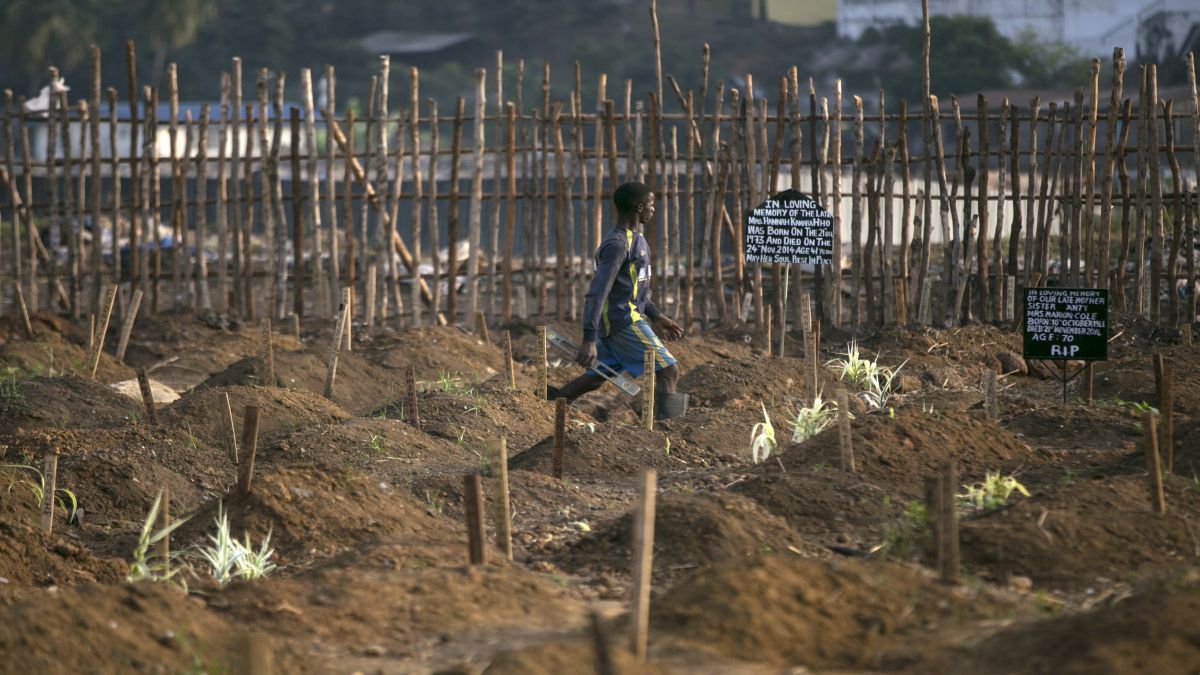The country of Sierra Leone has declared a national emergency on substance abuse, with President Julius Maada Bio calling on his government to crack down on the rising use of a cheap and sometimes deadly synthetic drug known as kush.
The rising demand for kush, whose main ingredient is ground-up human bones, has also led to people in the African nation to dig up graves and rob skeletons.
We take a closer look at just what is kush and how people in Sierra Leone are going to drastic lengths to get their hands on the drug.
What is kush?
Not to be confused with the drug of the same name found in the US, kush in Sierra Leone is quite different and intoxicating. It is a mixture of cannabis, fentanyl , tramadol, formaldehyde and – according to some – ground down humans bones.
According to a report in The Conversation, there is no definitive evidence of bones being grounded into the drug, but according to many, grounded bones are added to make it more intoxicating. Some suggest that the sulphur content of the bones causes a high.
According to authorities, it has taken the West African nation by storm since it first appeared on the scene six years ago. Moreover, its easy accessibility and low price point — it is sold for 5 leones (Rs 0.21) per joint — has made it irresistible to a generation of unemployed young Sierra Leoneans seeking an escape from lives of grinding poverty.
Kush, according to experts, is a depressant, offering relief from the everyday stresses of life, but at a heavy cost. Users say the high is often accompanied by a pounding sensation in the head and pain in the neck and joints. Prolonged use of the drug results in many resorting to theft to fund their habit. They start to forego basic hygiene. Their immune systems become weakened. Sores fester, and many complain of severe swelling in the feet and lower legs.
Impact Shorts
More ShortsThe drug also causes liver, kidney and respiratory problems and many have also lost their life to the narcotic.
How prevalent is kush addiction?
In the years since introduced in the market, kush has become commonplace with whole neighbourhoods and communities addicted to the narcotic. The Sierra Leone Psychiatric Teaching Hospital in Freetown has reportedly been overwhelmed with kush addicts in recent years.
“We have already recorded nearly 2,000 cases of kush addicts in 2023 at the hospital. Many are dying in homes and on the streets,” Dr Jusu Mattia, acting medical superintendent at the centre, told The Telegraph. In 2020, it identified 47 people as users. In 2022, it was 1,101. Most of the patients are men between 18 and 25.
But what is the allure of the drug? One user was quoted as telling NPR, “It makes you forget. We’re under such strain. There’s no work. There’s nothing here.”
Other users also agree with this sentiment, giving rise to a kush epidemic in the nation. As Dr Mattia states, “The kush drug crisis is everywhere.”
But when asked, dealers said that kush users aren’t limited to the poor alone. Videos on social media show civil servants and policemen using the drug. Some even come from the country’s wealthy elite.
How kush addition has led to grave robbing?
And with the demand for kush rising in Sierra Leone, there has been an increase in thefts at cemeteries. Dealers are turning into grave robbers, breaking into thousands of tombs to steal skeletons to keep up with the demands.
And owing to such incidents, the country’s government has deployed forces at burial grounds to prevent addicts and dealers from digging up graves and exhuming skeletons to produce the drug.
Last Thursday, President Bio said: “Our country is currently faced with an existential threat due to the ravaging impact of drugs and substance abuse, particularly the devastating synthetic drug kush.”
He further directed officials to set up a National Task Force on Drugs and Substance Abuse, which will primarily focus on “combatting the kush crisis”.
The head of Sierra Leone’s only psychiatric hospital, Abdul Jalloh, welcomed Bio’s declaration as a crucial step towards addressing drug use. “It signifies the prioritisation of resources, attention and intervention to combat this growing epidemic," he was quoted as saying by the BBC.
With inputs from agencies


)

)
)
)
)
)
)
)
)



